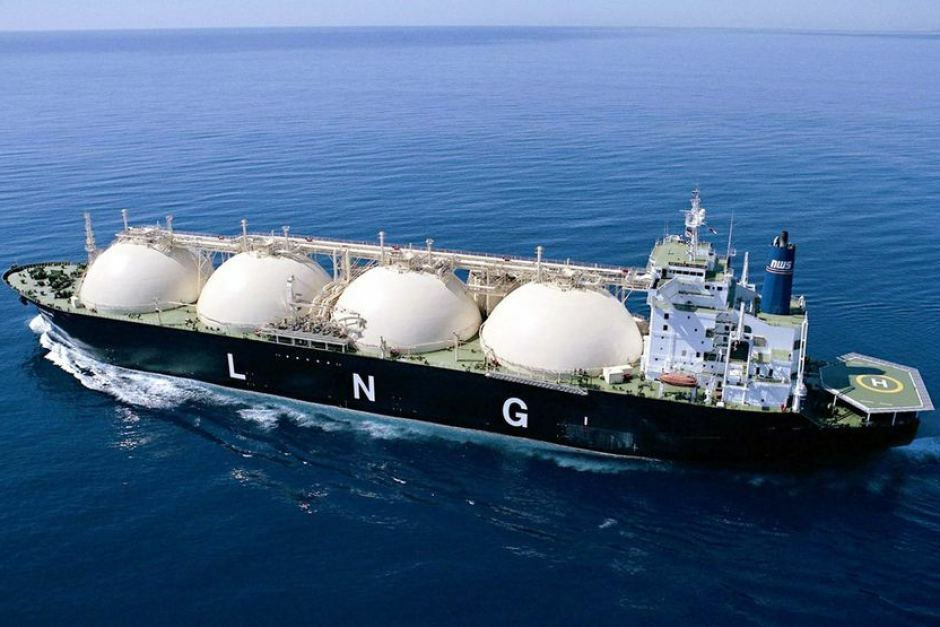Want to discuss/comment on the opinion expressed in this article? Send an email to chiefeditor.MJPE@pesmaastricht.com
By Manuel Fernandez Prieto
Given the current situation in the world, institutions must show strength and determination by making decisions when needed. In the European Union, this has been failing for decades. Allowing member states to make individual decisions without considering common goals has led to the current situation. The energy crisis, aggravated by the war in Ukraine, is to blame on those who made Europe a continent addicted to natural gas. This scenario could have been avoided by investing in nuclear energy, for example.

© Marine Digital
The Problems
While it is true that the EU's gas problem has been on the scene for years, the problem was made evident as soon as the leading supplier, Russia, began to bargain politically when the war in Ukraine started.
Once the gas supply was threatened by the situation already predicted by the US, it was too late to find a solution that would be affordable for European citizens.
The truth is that the energy crisis unveils an even bigger problem, the need for more strength in EU institutions to apply policies. This would give them the power to adopt more controversial measures, such as the adoption of nuclear energy.
The Gas Addiction
The energy crisis impacted EU citizens through increased prices, increased tensions with neighbouring countries, and significant disruption of the European agenda. In the first place, all European inhabitants have experienced a rise in their energy bills since LNG (liquified natural gas) had to be imported, mainly from the US, at a higher price.
To solve this problem, the leading causes and precedents must be analyzed. Before all else, it can be seen how the EU allowed member states to undertake different energy policies, which had no common objective. While if it failed, the impact would indeed be joint.
To illustrate: Europe's industrial powerhouse, Germany, decided on a gas-based economy, including investments like the Nord Stream 2 pipeline. These policies ended up in billions wasted in a sabotaged gas line coming back to burning coal and higher energy prices.
Therefore, we can address two problems here, the energy situation and the incapacity to avoid EU agencies even when having the tools to do so.
Energy, Economics, and the Agenda
The dependence on Russian gas and the use of sanctions contradicts the EU's agenda of supporting democracy and aiding developing countries. The import of LNG and sanctions on Russia caused a supply contraction, leading to rising prices and changes in the global market.
The US benefited from increased exports and profits, while Russia found alternative buyers such as India and China. Additionally, the higher prices that the EU is willing to pay for LNG can disrupt the progress of some developing countries and contradict aid packages issued by the EU.
The cut in gas supply in such countries would mean stopping part of their economic activities and industrial development. This goes against Europe's agenda and the purpose of the aid packages for developing regions.
The second argument highlights that Europe's dependence on gas imports from a few unstable countries, such as Russia, Algeria, and Nigeria, poses a risk of supply disruption and undermines the EU's energy security.
Importing gas from these countries indirectly supports non-democratic regimes and gives them bargaining power. Therefore, the argument emphasizes the need for diversifying energy sources to ensure energy security and reduce dependence on unstable countries.
A Nuclear Solution
The solution to this problem must be based on an alternative energy source and would have to be implemented in the middle long term; the objective is to address the institutional issue collaterally.
If the EU is or pretends to be not only an economic union but a political project, such issues should be addressed commonly and with a global vision of all the EU's principles. In this case, France can be taken as an example as it invested in nuclear energy despite its unpopularity instead of undertaking denuclearization programs in favour of natural gas.
This program should have been advised by the EU and reconsidered due to its security and ethical issues.
Addressing the Problem
Europe's energy crisis reveals not only the immediate problems of rising energy prices and geopolitical tensions but also the deeper issues of a lack of unity and common goals among member states and a failure to take decisive actions when needed.
Europe's reliance on natural gas as a primary energy source and the lack of investment in alternative sources, such as nuclear energy, has made the continent vulnerable to energy supply disruptions and price increases.
The crisis also highlights the need for more decisive political leadership and institutions within the European Union to address common issues and prioritize long-term solutions over short-term gains.
While investing in nuclear energy may be unpopular, it presents a viable alternative to help Europe reduce its reliance on fossil fuels and achieve energy security. Ultimately, addressing Europe's energy crisis requires a coordinated effort to prioritize sustainable and efficient energy sources while balancing economic and geopolitical interests.
Sources: European Council, Reuters, The Federalist, World Nuclear Association
Written By Manuel Fernandez Prieto
April 2023
The opinions expressed in this publication are those of the author(s). They do not purport to reflect the opinions or views of MJPE or its Board. The designations employed in this publication and the presentation of material therein do not imply the expression of any opinion whatsoever on the part of the MJPE concerning the legal status of any country, area or territory or of its authorities, or concerning the delimitation of its frontiers.

Comments